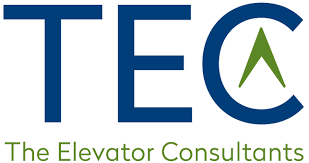When it comes to elevators, building owners and property managers often ask: “Which elevator company is the best?” The answer depends on various factors, including your building’s specific needs, the type of equipment installed, and the services required. Whether you’re seeking routine maintenance, modernization, or new installations, understanding the strengths and limitations of major and independent elevator companies can help you make an informed choice.
Major Elevator Companies: A Global Presence
The global elevator industry is led by four major companies: Otis Elevator, Schindler Elevator, KONE Elevator, and TK Elevator. These organizations dominate the market due to their being OEM (original equipment manufacturers), extensive service networks, longevity of companies, and ability to handle diversity of projects. There are also companies like Fujitec Elevator and Mitsubishi Elevator however they do not service every market like the four majors.
Strengths of Major Elevator Companies
- Equipment Development: Major companies develop and sell elevator and escalator systems.
- Global Resources: Their international presence ensures research and development for their products.
- Comprehensive Solutions: From new installations to modernization, these companies provide end-to-end elevator and escalator systems and services.
Limitations of Major Elevator Companies
- Proprietary Equipment: Many use proprietary systems that only their technicians can service, locking customers into long-term maintenance agreements and part replacement. The OEM has the ability to control the market for their equipment, including deciding when to phase out parts at their discretion.
- Higher Costs: Maintenance and repair costs with major companies can be higher than with independent providers. Bidding out for competitive bidding usually is not feasible.
- Less Flexibility: Service terms and schedules may be less adaptable to individual building needs.
Independent Elevator Companies: Flexibility And Personalized Service
Independent elevator companies cater to regional or local markets, often offering a personalized and cost-effective alternative to the majors may be achievable. They are particularly valuable for buildings who want an alternative to the majors and may have unique needs with legacy systems or those requiring tailored services.
Strengths of Independent Elevator Companies
- Cost-Effective Solutions: Independent providers typically offer competitive pricing for maintenance and repairs.
- Personalized Attention: Smaller companies often provide more flexible service tailored to specific building needs.
- Support for Legacy Systems: Independents may excel at servicing older equipment that OEMs no longer support.
Limitations of Independent Elevator Companies
- Resource Constraints: Smaller scale may limit their ability to obtain parts specifically from the majors or the price maybe escalated from the OEM.
- Limited Proprietary: Some independent companies may lack access to the latest technologies like the machine-room-less (MRL) and proprietary for serviceability.
Key Factors To Consider
1. Equipment Compatibility and Service Needs
Evaluate whether the company has expertise with your specific equipment. Major OEMs are ideal for their proprietary systems, while independents may be able to service which is based on each individual company. It is common for independents to often excel with non-proprietary or older equipment.
2. Maintenance and Modernization
- Routine Maintenance: Choose a provider with a track record of reliability and preventative elevator maintenance care to reduce downtime and prolong equipment life.
- Modernization Services: If your equipment needs upgrading, access whether the company can meet the needs of the building including using proprietary and non-proprietary elevator equipment.
3. Contract Transparency
Clear terms and conditions are essential when renewing or negotiating maintenance agreements. Ensure the contract specifies what is included and whether it aligns with your building’s operational goals. The building should have a clear understanding of all terms, conditions, key performance agreements, service level agreements, inclusions, exclusions, rates, etc., form all potential elevator service providers.
4. Project Scope for New Installations
For new construction, major elevator companies may offer online specifications and dimensions that developers and architects like to use. These are typically for proprietary OEM equipment and may lock you in to the major elevator company for the life of the building. However, independents can often provide competitive bids for non-proprietary installations. The majors can also install non-proprietary equipment but usually charge a premium for this since they want their equipment installed.
Union Vs. Non-union Companies
The choice between a union and non-union elevator company adds another layer of complexity to choosing an elevator company. This also depends on the location of the building to determine if there are even choices for the building.
Union Companies
- Pros: Unionized providers often have technicians with consistent training, certifications, and access to advanced tools and techniques.
- Cons: These companies can have higher labor costs, which may reflect in service rates.
Non-Union Companies
- Pros: Typically, more cost-effective and flexible in-service offerings.
- Cons: Training and resource availability can vary, so vetting is crucial to ensure quality. However, most non-union companies have properly trained individuals.
When choosing between union and non-union companies, consider your elevator and escalator systems, building situation and ramifications of using both type of labor.
Technology And Future Trends
Both major and independent companies are increasingly adopting innovative solutions to meet the evolving market to meet the needs of the buildings. While majors are developing and manufacturing elevator an escalator system many independents offer similar tools into their offerings from companies that manufacture systems beyond the major manufacturers.
Making The Right Choice For Your Building
The decision to choose between a major elevator company or an independent provider depends on your building’s unique needs.
- For proprietary systems, major companies provide unmatched expertise and resources.
- For cost-effective maintenance, legacy equipment, or personalized service, independent companies have flexibility.
- When considering union or non-union providers, prioritizing the needs of the buildings is critical.
By evaluating your building’s requirements, understanding the strengths and limitations of each provider type, and carefully reviewing service agreements, you can ensure your vertical transportation systems remain reliable, efficient, and cost-effective.

